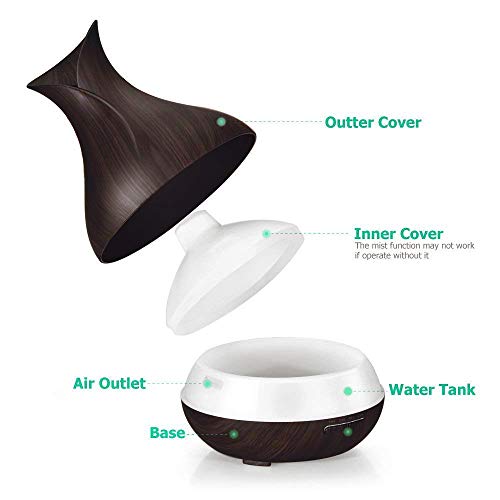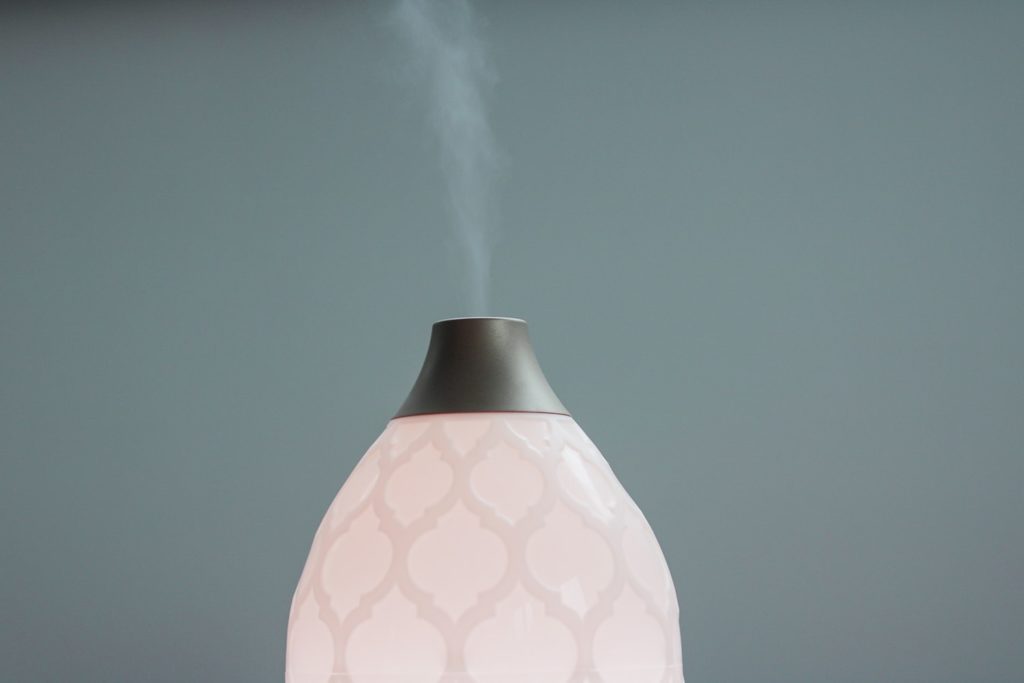While you may expect an essential oil diffuser to make a little bit of noise (it is a machine, after all), it’s not usually normal for a diffuser to get loud enough for you to notice. If you find yourself asking the question Why is My Essential Oil Diffuser Making Noise, that’s a good clue that you’ve got an issue to deal with.
Instead of gritting your teeth and trying to ignore your office or room diffuser when it gets loud, it’s important to try and diagnose the issue before it gets worse or potentially even breaks your diffuser. While this can sound daunting, diffusers are pretty simple machines, and figuring out what’s wrong with them isn’t as challenging as you may assume.
In today’s guide, we’re going to look at some of the root causes behind essential oil diffusers making loud noises that they shouldn’t be making.
We’ll also go over some of the more legitimate reasons why your essential oil diffuser might be making noise. This should make it easier to determine whether or not your diffuser is working properly based on the sound you’re hearing.
Noises That Should Be Coming From Your Essential Oil Diffuser

Before we get into troubleshooting your problem, let’s take a look at the noises that your essential oil diffuser should be making in the first place. If you hear any of the following noises and they’re not ear-gratingly loud, then you shouldn’t have anything to worry about. This can save you time diagnosing something that isn’t actually a problem in the first place.
Water
The water in your diffuser can be one of the major sources of noise coming from it, and that’s simply because moving water makes noise. Since ultrasonic essential oil diffusers are essentially turning the water in their reservoirs into mist mixed with your essential oils, you can expect that water to move around a little bit.
If you hear the sound of running water or little splashes every now and then, it shouldn’t be cause for concern, as that shows you that your essential oil diffuser is working properly. On the other hand, if you hear running water and notice that your diffuser is leaking, then you may have a crack in the reservoir itself.
Just keep in mind that the sound of water doesn’t automatically mean that there’s something wrong with your diffuser. Also, if you choose an essential oil nebulizer, you won’t have to deal with water and the potential noise issues related to it.
The Fan

The majority of essential oil diffusers are equipped with a fan to spread the essential oil vapor throughout the air. These fans are typically powered by a little electric motor embedded inside the diffuser’s housing.
Most of the time, the fan and the motor should make a soft whirring or buzzing noise that should remain beneath notice unless you try and listen for it.
Most of the time.
However, if something’s wrong with your diffuser, you may notice these sounds getting far louder to the point that they may be annoying. We’ll take a closer look at serious issues with diffuser fans and motors when we go over the sounds that you should be concerned about.
The Ultrasonic Disk

A diffuser’s ultrasonic disk is the part that’s designed to combine the water vapor and oils into a vapor that can be spread through the air in your home. As the name “ultrasonic” would suggest, these disks are supposed to vibrate at a frequency beyond the level that the human ear can perceive.
While this is how the ultrasonic disk should operate in theory, they still sometimes vibrate enough for us to hear them. You shouldn’t hear the ultrasonic disk vibrating unless you specifically listen for it, and if it’s gotten far louder recently, then you know that something’s wrong.
Why Is My Essential Oil Diffuser Making Noise?
No products found.Now that we’ve covered some of the normal reasons why your diffuser should be making noise, let’s look at some of the root causes behind unusually loud noises. These can range from a lack of water in the reservoir to a deeper issue that may need to be fixed through your diffuser’s warranty.
Lack of Water
This is the most common reason why your essential oil diffuser is making a loud noise, and it can easily be fixed. If the water level in your diffuser’s reservoir gets too low, it will start making an annoying noise, but this is one of the easiest issues to fix.
As you’d expect, the easiest way to check if this is the cause of your issue is to take a look inside the diffuser’s reservoir so that you can see the water levels. How easy this is will depend on the design of your essential oil diffuser. Most cheap models have an easily-accessible reservoir, but some high-end ones may require you to go through a few steps to access the reservoir itself.
If you notice that the reservoir is low, simply refill it and start your diffuser once more. This should solve the loud noise if it was caused by a low water level. Be sure to run your diffuser for a couple of minutes before determining whether or not the issue is fixed, as it may take a few moments for the water in the reservoir to start being used.
If you’ve waited five minutes and noticed that your diffuser is still making too loud of a noise, even with a full water reservoir, unplug it and move on to the next phase of diagnosing the issue.
Loose Debris in the Diffuser

Another reason why your essential oil diffuser may have started making an annoying noise is because a piece of debris got stuck inside of the diffuser. Since many diffusers use fans, the air pressure created by the fan can often be sufficient to suck something into the diffuser, creating an issue.
Debris can even be formed by a buildup of essential oils that you’ve used in the past. So don’t just assume that something from outside of your diffuser may be clogging it up. Dealing with this issue is a little more complicated than checking the reservoir, so be sure to have your diffuser’s instruction manual close at hand.
Go over the assembly instructions, and start at the end so that you can start deconstructing your diffuser. More affordable diffusers should be relatively simple to take apart, as they often have a simple plastic housing that can be removed by unscrewing a few of the screws holding it together.
On the other hand, pricier essential oil diffusers may have a more complicated disassembly process. You may want to photograph the disassembly process so you’ll have a good idea what goes where when it’s time to reassemble.
When you’ve disassembled your diffuser, take the time to go through it and see if there’s any debris that may be causing the loud noise. Be sure to look near the fan and ensure that dust hasn’t started to clog it up. This is especially true if you live in the city, where cars tend to kick up far more dust.
You may want to clean it with some vinegar. If you don’t like the vingar smell, see our article on cleaning essential oil diffusers without vinegar.
After you’ve finished looking through your diffuser and cleaning it out, start putting it back together. Refill the reservoir and plug it back in when you’re done reassembling the diffuser and start running it.
Give the diffuser a few moments to run and determine whether or not it’s still making too much noise.
If cleaning the debris out of the diffuser didn’t help, move on to the next tip.
Serious Mechanical Issues
If you’ve attempted to fix your diffuser’s issue using the previous two steps and it’s still making a loud noise, that may mean that there’s a more severe issue that you won’t be able to fix on your own. If you have a cheaper essential oil diffuser, you may wish to simply replace it at this point.
On the other hand, if you own a high-end diffuser that cost you a significant sum of money, you may want to take it up with the manufacturer.
First, check to see if your warranty is still valid on the diffuser. If it is, get in contact with the manufacturer and see if you can send them your diffuser for repairs.
If your diffuser is out of warranty, we’d still recommend getting in touch with the manufacturer. If loud noises are a frequent enough issue for other customers, they may even send you a replacement model without a currently valid warranty. That being said, don’t expect this to happen, but it may be a pleasant surprise.
Keep in mind that some manufacturers will request that you send back the defective diffuser before you can get your replacement. However, if you’re dealing with a widespread issue or if you send video evidence of your problem, a replacement may be sent along with no further action on your part.
Conclusion
While essential oil diffusers can be expected to make a little bit of noise while they’re operating, it’s certainly not normal for them to be annoyingly loud. We hope that this guide has helped you figure out what’s wrong with your particular diffuser.





